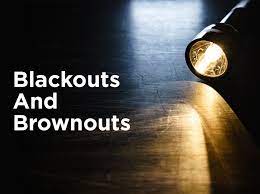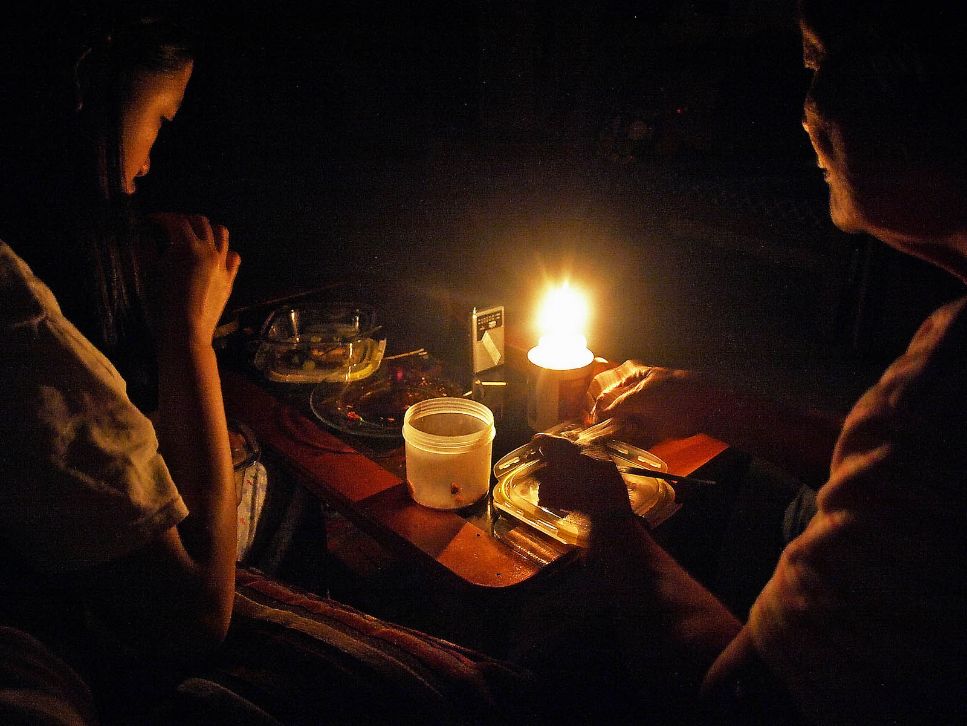Everything appears to be still when the power is out. Unfortunately, things frequently come to a standstill. A brownout is caused by high electricity demand that is near or above a utility’s production capacity. When the voltage falls below the normal mains supply level, a brownout occurs. Please read this article carefully if you want to learn more about brownouts.
What Is A Brownout?
A brownout is a decrease in voltage in the power grid. The word “bulb” is derived from the brownish light that low-voltage bulbs emit. A partial voltage drop is known as a brownout. You still have some power, though it might only be enough for a few of your devices to function.
Systems for heating and lighting are created by manufacturers to run on low voltage. Before and after the brownout, your heating system might not have changed. However, electric motors and computers are susceptible to damage from brownouts. After a few hours, they may start to overheat, which could harm them.
How Do Brownouts Happen?
A delicate balance must be struck in order to produce electricity. Electrical utilities use their network of transformers, substations, and generators to ensure that they are producing and distributing electricity at the proper levels due to the ever-changing demand for electricity.
When demand is near or above the utility’s maximum production capacity, the utility may intentionally throttle the flow of electricity in certain areas, resulting in a brownout. Your home continues to receive electricity during a brownout, but at a lower voltage than usual.
The dimmer incandescent light bulbs that frequently occur during brownouts are the source of the event’s name.
These planned blackouts could last anywhere from a few minutes to several hours, after which the utility should be able to restore full power because the demand for electricity should have dropped.
Brownouts can also happen on their own, though they happen much less frequently, due to damage or malfunction to the grid or a nearby power plant.
How To Deal With A Brownout?
By preventing brownouts from ever happening, you can best prepare for them. Purchase a backup generator for your house. You can switch to the generator when your utility company stops providing you with electricity.
Make an effort to use less electricity. When not in use, turn off your appliances, especially during periods of high demand, such as holidays. Use natural gas-powered appliances instead, like stoves.
Turn off any non-essential appliances when a brownout occurs. Computers and other delicate electronics should be unplugged. Place them in areas where they can cool off if they seem hot. Switch your entertainment and lighting sources to batteries. Do something else that doesn’t require electricity.
It’s possible that no one else on your block is experiencing a brownout. Check to see if your neighbors have electricity by going outside. If they do, speak with your utility company to learn more.
Keep calm; your utility company is skilled at resolving brownouts. You will once again have full power once the need for electricity declines.

What Is A Blackout?
A total loss of electricity is referred to as a blackout. Lighting fixtures and other electronic devices turn off. A “power outage” is a phrase you may be familiar with.” A city-scale loss of electricity is referred to as a blackout. A street or block may experience a small-scale power outage.
Blackouts can be brought on by a variety of factors. Here are a few of the most typical causes:
- Damaged transformers or electric lines
- A peak in power demand, pushing the grid past its limit
- Lightning that strikes poles, disrupting the electrical flow
- Disturbed underground power lines
- Ice build-up on power lines
- Fallen tree branches on power lines
Even in the summer when electricity demand is at its highest, blackouts are extremely uncommon.
How To Survive A Blackout?
Similar to brownouts, you should plan ahead for a blackout. Purchase a backup generator for your home and start using non-electric appliances. To lessen the impact of a loss, try to reduce your reliance on electricity.
You should evacuate if a natural disaster is anticipated and you need electricity. Remove yourself from the area or look for public housing. Consult trusted sources for advice, such as the Ohio.gov page on power outage health and safety concerns, if you expect severe weather.
When the power goes out, you might feel anxious. Take a moment to breathe deeply and consider your surroundings. Check your neighbors’ windows to see if they’re also without electricity.
You can look up local power outage information if you can use your phone to access the internet. The map of Ohio’s power outages is just one of the many resources that are available.
Observe the CDC’s advice on what to do. To preserve food, keep the refrigerator doors closed. Avoid consuming tap water.
Find a public space, such as a shopping center, if your air conditioning is off. They can keep you cool because they have air conditioning. Dress in more layers if your heating is off. To get your blood flowing, take a brief walk.
Who Should I Call In A Power Blackout Or Brownout?
Your local utility should be contacted next to confirm that the brownout is coming from the grid after you’ve made your electronics safe. If everything is in order, an electrical issue in your home could be the cause of the brownout conditions you’re currently experiencing. For urgent assistance, contact an electrician.
If at all possible, during a blackout, report the outage to your local utility and ask when service will be restored.
Check with your electrical utility to see if they offer a text or email alerts for brownouts and blackouts, both planned and unplanned. The simplest way to stay informed about changes to the electrical system that might affect you is to sign up for these alerts.
Even though brownouts and blackouts are uncommon, knowing what they are and how to handle them is essential to reducing the inconvenience and potential harm to your electronics.
Final Words
Although brownouts and blackouts are both uncommon occurrences, it is best to comprehend how they differ from one another. blackouts to minimize potential damage to your electronics and the inconvenience it could mean for you and your family.
Take similar action in response to a brownout or blackout. Purchase a backup generator and abandon electric appliances.
